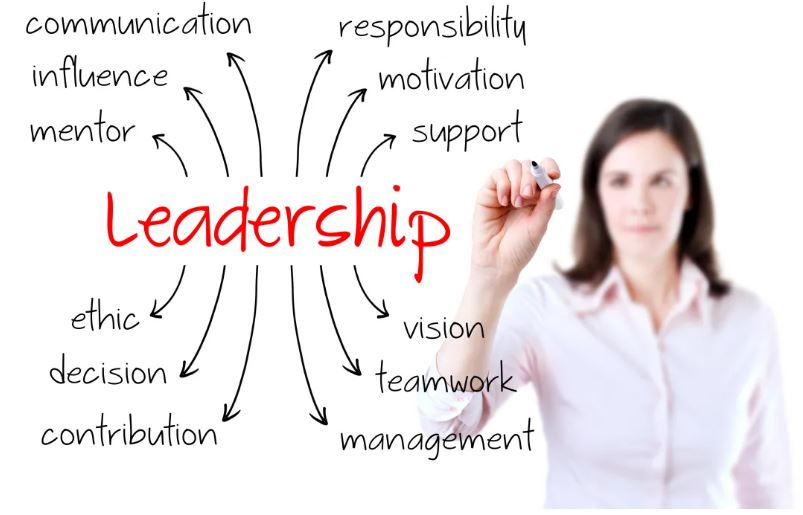The Impact and Influence of Leadership on Project Management Functions (2014)
Influence of Leadership on Project Management Functions Dissertation – Many businesses perceive leadership and project management as key concepts which may lead organisations to gain competitive advantage over their rivals. This dissertation focuses on leadership and project management dynamics and their interrelationship. Many academics have argued that the leadership style is the manner of affecting employees of the subordinate group, consolidated in its behaviour, and having an influence on the group and its performance.
In a narrow sense, it is simply the manner of stimulation or the management style and the choice of style depends on where we see the chance for the particular company to be. It is characterised by the choice of methods and techniques making the subordinates perform better and more efficiently at work. The style of leadership is formed by many factors such as human nature or temper, penchants or aptitude or even health condition. Traditions, customs, working conditions as well as the current organisational situation can also influence the choice of appropriate style by the manager.
On the other hand, project management is a relatively new concept. These tools are now widely used in all industries, both public and private. Project management involves a methodological approach to planning and guiding project processes from start to finish. It is further defined as a carefully planned and organized effort to accomplish a specific one-time task, such as constructing a building or implementing a new computer system.
This dissertation will assess the role of leadership in project management and will conduct an in depth analysis and discussion for exploring the dynamics involved in their relationship and the kind of relationship they exhibit especially the influence of leadership on project management. The aim of the dissertation is to identify and discuss the variables and elements affecting the project management functions and its effectiveness, especially the influence of leadership on project management i.e. either positive or negative and to predict on how the effectiveness of project management can be improved in the organisational environment at the UK Border Agency. Following is the list of objectives that will be followed as a road map to pursue our aim:
- To explore the literature and review the theoretical perspectives on leadership in detail
- To explore the literature and review the theoretical perspectives on project management in detail
- To investigate the role of leadership in project management functions and how these two concepts (project management & leadership) relate with each other, i.e. relationship between the two
- To examine how project management can be made effective i.e. key environmental and human aspects that are involved in the effectiveness of project management
- To analyse and to discuss on how the project management effectiveness can be enhanced by improving the leadership in the UK Boarder Agency
- 16,000 words – 70 pages in length
- Excellent use of literature
- Good analysis of subject area
- Well written throughout
- Includes questionnaire
- Ideal for international business and MBA students
1: Introduction
Research Title
Research Aims
Research Objectives
Research Background
Four Core Theory Groups
Background of the UK Border Agency
Scope of Research
2: Literature Review
Leadership (Theoretical Perspective)
Discussion of Four Core Theory Groups
Characteristic or Trait Theories (Discussion)
Characteristics
Skills
Behavioural Theories (Discussion)
Autocratic Leaders
Democratic Leaders
Laissez-faire Leaders
Blake & Mouton Managerial Model
The Impoverished Style
Country Club Style
Authoritarian Style
The Team Style
The Middle-of-the-Road Style
Contingency Theories (Discussion)
Fiedler’s Contingency Model
The Hersey-Blanchard Model of Leadership
Directive Behaviour
Supportive Behaviour
Power and Influence Theories – What is the Source of the Leader’s Power?
Project Management (Theoretical Perspective)
Defining Phases of a Project
How PM works
Integration
Procurement
Communication
Team management
Control
Planning
Project Management and the Role of Leadership
3 – Research Methodology
Research Purpose
Research Discussion
Research Approach
Rationale for Choosing Both Approaches in Combination
Research Modes
Primary data collection
Interviews
Focus Group
Secondary Data
Research Design
Questionnaire
Secondary Data Collection
Sample Selection and Justification
Data Analysis Methods
Advantages of Research Approach and Data Collection
Disadvantage of Research Approach and Data Collection
4: Analysis of Findings and Discussion
Overview
Questionnaire Analysis
Critical Analysis
Discussion of Key Findings
5: Conclusion
Synopsis of Findings
Conclusion drawn from Findings
Implications
Recommendations
Limitations
Ideas for Further Research
References
Appendix
Questionnaire

